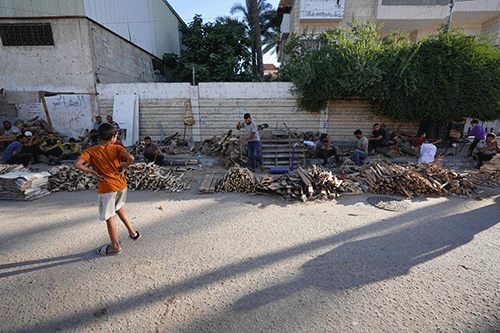Namibia has called for an immediate ceasefire in Arab occupied territories to allow for reconstruction activities to commence, and for economic activities to resume.
This is according to labour minister Utoni Nujoma, who yesterday called the current situation “unacceptable” under the watch of the international community.
He expressed these sentiments during the 112th International Labour Conference in Geneva in support of the recommendations of the International Labour Organisation (ILO)’s director general Gilbert Houngbo about workers of the occupied Arab territories.
Nujoma said it is a painful reality that the war and humanitarian crisis have resulted in a shattered labour market, the virtual destruction of the private sector, job losses of more than half-a-million, a lack of social protection and increasing violations of labour laws, forced labour, unpaid work, informality, use of the barter system as well as mental health risks for both employers and workers.
“These are indicators that decent work has been completely decimated. The current situation requires the fostering of massive initiatives to rebuild, to create decent jobs, and greatly expand cash transfers,” he said.
He thus called on the current situation to cease immediately to avoid a further extreme humanitarian crisis.
Nujoma believes in the power of the international labour instruments, which are robust in constantly-changing patterns of the world of work.
“Namibia is confident that the ILO Recommendation, No. 205, will provide overall guidance on how employment-creation and decent work should be placed at the forefront of recovery efforts, and how to strengthen peace and resilience.”
According to the ILO director general Gilbert Houngbo, Gaza had no jobs to offer prior to the war, and deprivation was dominant already then.
“Now, there is little employment left to speak of. The labour market has collapsed amid widespread destruction, displacement, killing and hunger. Labour rights have been decimated,” said Houngbo.
He reiterated the ILO’s commitment to help create the much-needed jobs as the situation on the ground allows.
“There is a rich body of experience within the ILO on how to make recovery and reconstruction job-rich, and how to put decent work at the heart of rehabilitation efforts,” he said.
The ILO Recommendation No. 205 provides guidance to member states on measures to be taken to generate employment and decent work for the purposes of prevention, recovery, peace and resilience with respect to crisis situations arising from conflicts and disasters.



